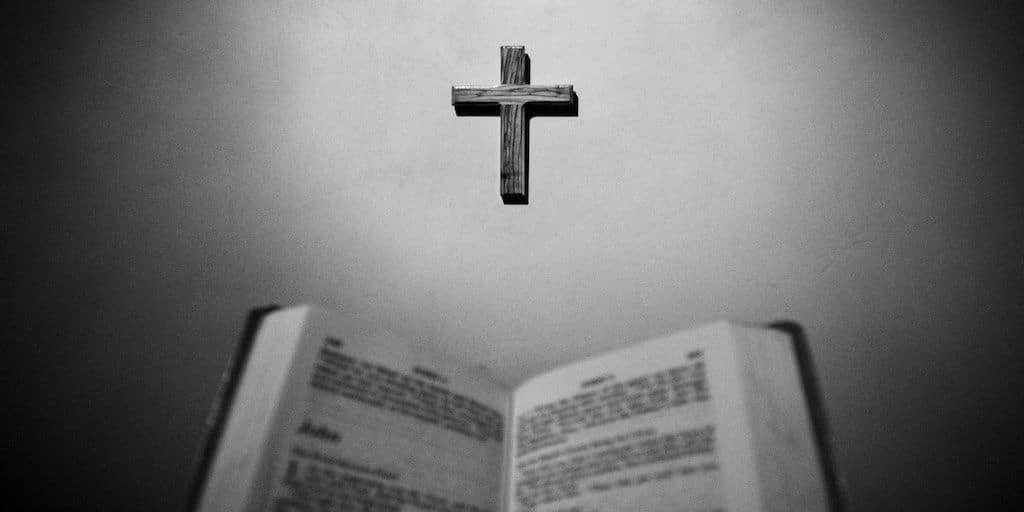I Believe… in the Forgiveness of Sin

Why do we need to have forgiveness of sin? To answer that, first we need to understand just how bad our sin is in the sight of God. It is far too easy for us to compare ourselves to others we know or hear about. After all, are any of us as bad as Hitler? How about Nero? Stalin? Genghis Khan? Surely we can all think of someone who is much worse than we are, right?
But what does God say about us? Romans 3:10-18:
As it is written: “None is righteous, no, not one; no one understands; no one seeks for God. All have turned aside; together they have become worthless; no one does good, not even one. Their throat is an open grave; they use their tongues to deceive. The venom of asps is under their lips. Their mouth is full of curses and bitterness. Their feet are swift to shed blood; in their paths are ruin and misery, and the way of peace they have not known. There is no fear of God before their eyes.”
Ouch!
Does that description of yourself from God’s perspective give you a deeper, richer understanding of God’s incredible gift of His Son who died on the cross to take away our sin? Can you imagine? Albert Mohler says this:
By understanding our sin aright, the illuminating splendor of the cross of Jesus Christ stands infinitely more beautiful to behold and proclaim. Only through recapturing the universal and horrific state of our sinfulness can we begin to understand the resplendent glories of the gospel and the immeasurable grace of God in forgiving our sin.[1]
But this gift of forgiveness is hardly free. We have already covered in other articles in this series what Jesus endured to secure this for us. We must never forget that. There are also some things God requires of us in return for His forgiveness. James Dodds lists these four[2]:
First, we must repent – “Repent therefore, and turn back, that your sins may be blotted out” (Acts 3:19); “Whoever conceals his transgressions will not prosper, but he who confesses and forsakes them will obtain mercy” (Prov. 38:13).
Second, we must confess – “If we confess our sins, he is faithful and just to forgive us our sins and to cleanse us from all unrighteousness” (1 John 1:9).
Third, we must have “unfeigned faith” – “And without faith it is impossible to please him, for whoever would draw near to God must believe that he exists and that he rewards those who seek him” (Heb 11:6); “But let him ask in faith, with no doubting, for the one who doubts is like a wave of the sea that is driven and tossed by the wind. For that person must not suppose that he will receive anything from the Lord” (James 1:6-7).
And finally, we must have “humble, earnest resolution to be obedient to the will of God” – “Create in me a clean heart, O God, and renew a right spirit within me. Cast me not away from your presence, and take not your Holy Spirit from me. Restore to me the joy of your salvation, and uphold me with a willing spirit” (Psa. 51:10-12).
Finally, Donald Cole explains what God does for us when He forgives us:
God not only forgives us, He also treats us as if we were righteous, and He brings us into His “family.” That is what Paul had in mind in his series of questions in Romans 8. “Who will bring a charge against God’s elect?” he asks (v. 33). Answer: No one! Guilt has been removed. “Who is the one who condemns?” (v. 34). Answer: No one! Condemnation has been lifted. “Who shall separate us from the love of Christ?” (v. 35). Answer: No one! Separation is ended, and reconciliation has been achieved.[3]
What an astonishing gift!
[1] R. Albert Mohler, The Apostles’ Creed (Thomas Nelson, Kindle Edition), p. 169, emphasis added.
[2] James Dodds, Exposition of the Apostles’ Creed, ebook, p. 75.
[3] C. Donald Cole, All You Need to Believe (Foundations of the Faith) (Moody Publishers, Kindle Edition), p. 127.








